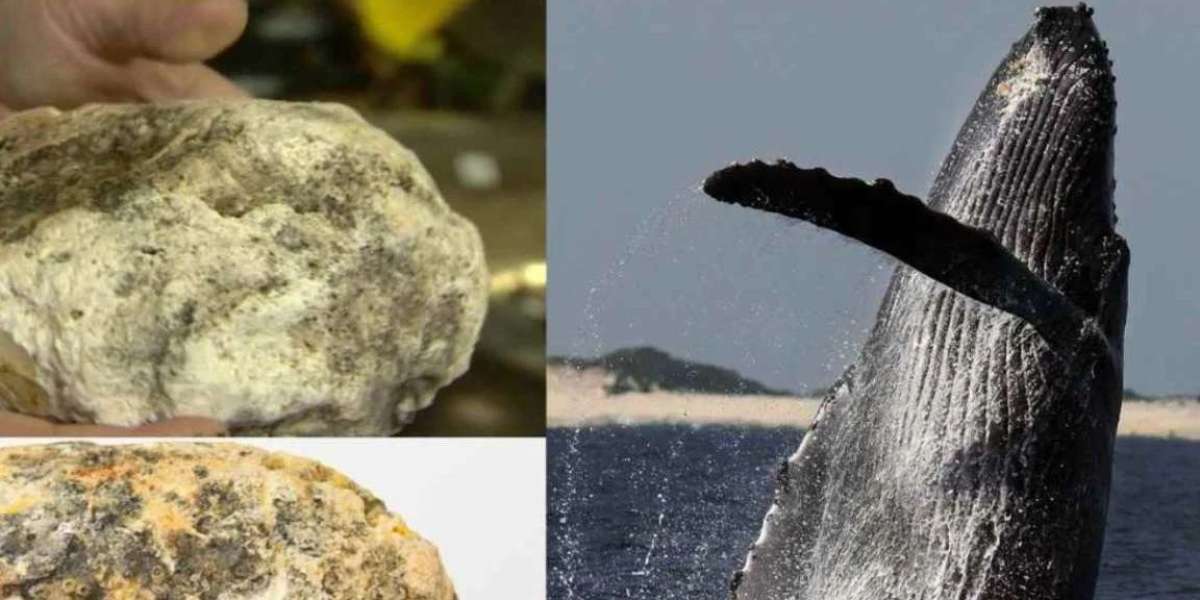Zoom-Bangla Desk : Suppose you are standing on the seashore listening to the roar of huge waves and soaking your feet in the salt water. At that time, a group-shaped object floated near your feet. Soon you know it's whale vomit. There is no avoiding it. Because the price is more than a million rupees!
timi
Isn't it surprising to hear this? Surprisingly, the price of the vomit of the large sea mammal is more than crores of rupees. Whale vomit is called floating gold because of its price.
However, the international name of whale vomit is ambergris. The English word ambergris comes from the combination of the French word amber and grease. Basically, this ambergris is made in the stomach of sperm whales. Ambergris is in high demand in the black market. That is why ambergris trafficking involves international rings.
Recently, Border Guard Bangladesh (BGB) arrested a young man with 8 kg 398 grams of such priceless whale vomit from Shahpari Island in Teknaf, Cox's Bazar. BGB said the estimated market value of whale vomit or ambergris seized in the raid is around Tk 21 crore. And this information arouses curiosity. What is whale vomit? What is the secret of its high price?
An attempt was made to smuggle the whale's vomit into Myanmar through Shahpari Island Bazarpara border in Teknaf. However, it was confirmed after examination at Ramur Bangladesh Oceanographic Research Institute in Cox's Bazar that the seized consignment contained in the sack was ambergris or whale vomit.
It is also known as floating gold or floating gold because of the high value of whale vomit or ambergris.
It is produced from sperm whale or sperm whale. Although humans have been using it since ancient times, its origin is unknown. Even 17 lakh 50 thousand year old fossil samples of ambergris have been found. Humans have been using it since at least thousands of years ago.
But there were various theories about where this object was coming from. Some thought it was a solid form of sea foam, others said the object was nothing more than the excrement of a giant bird.
According to the UK's Natural History Museum, the source of the mysterious substance first became clear in the early 18th century, after mass whaling began. Whale vomit or ambergris is sometimes found floating in the sea.
The Natural History Museum also reports that a large portion of the whale's diet comes from animals such as squid. Whales vomit most of the undigested or undigested parts, but some parts enter the gut and stick together. Gradually it turns into a solid mass of ambergris. Accumulations that grow in size over the years.
But why is the price of ambergris so high? The scarcity of whale vomit and its use in perfumery made it so valuable. Its scent can vary. Sometimes it is similar to musk.
According to National Geographic, ambergris can fetch several thousand dollars an ounce if the person in charge of choosing the fragrance at a perfume factory likes the smell.
It is sometimes made more valuable by an odorless alcohol called ambrane. This alcohol is extracted from ambergris. Ambrane is used to prolong the fragrance of perfumes. The amount of ambergris is also important. It can be guessed by the color of ambergris. Blacks have the least amount of ambrin and whites have the most. The best quality perfumes are usually made from white ambergris.
It is a highly prized substance, known for its unique aroma and preservative properties, said November Nicolas, owner of perfume company Sheimen. Adding it makes the fragrance more intense and lasting.
Nichols says ambergris is produced to protect the whale's gut from sharp objects (such as squid beaks). At one point, the whale spewed it. Then found floating in the sea or near the coast.
But how the substance floats freely in the ocean is still debated. Some think that whales may leave it with their faeces. Others believe that it becomes so large that it can cause the animal to burst its anus and die.
Sperm whales live all over the world, which means ambergris can be found floating on any ocean or most coastlines. But it doesn't. Also, very few whale carcasses contain ambergris.
Before mass whaling began in the 18th century, there were 1.1 million sperm whales in the world. Now only 3 lakh is left. And so lest it encourage whaling, ambergris is banned in perfumery in many countries. It is also illegal to trade. The United States is one such country.
Meanwhile, after the recovery of ambergris in Cox's Bazar, BGB said that the sale of ambergris, known as whale vomit, is prohibited in Bangladesh. Smuggling of ambergris through Bangladesh is a rare phenomenon.
But ambergris is still a common ingredient in heady French perfumes. Apart from France, its marketing is legal in some other countries including England.
Richard Sabin, curator of marine mammals at the Natural History Museum, said whales are now protected around the world. But may be at risk in future. Synthetic alternatives to ambergris are available and their use should be encouraged. Then the thought of extracting wealth from whales will disappear among people.
It is estimated that only 1 percent of whales are able to excrete ambergris in this way. It is so expensive because of its scarcity. Again, depending on the quality, the price of ambergris per kg can be from a few lakhs to one and a half to two crores.
In July 2023, a professor found a lump of ambergris in the gut of a dead whale, estimated to be worth five and a half million dollars. A dead whale washed ashore on the Spanish island of La Palma in strong waves. Antonio Fernandez, a professor, was determined to find out the cause of the whale's death. Fernández, head of the Institute of Animal Health and Food Security at the Universidad de Las Palmas de Gran Canaria, set out to investigate the cause of the whale's death. It was then discovered that a 21-pound mass was stuck in the animal's intestines. This lump worth about five and a half million dollars is made of ambergris.
Countries in the world that do not have an army
In 2021, a group of fishermen in the Gulf of Aden sold a lump of ambergris to a man in the United Arab Emirates for $1.5 million, the BBC reported. All 35 fishermen b



















































